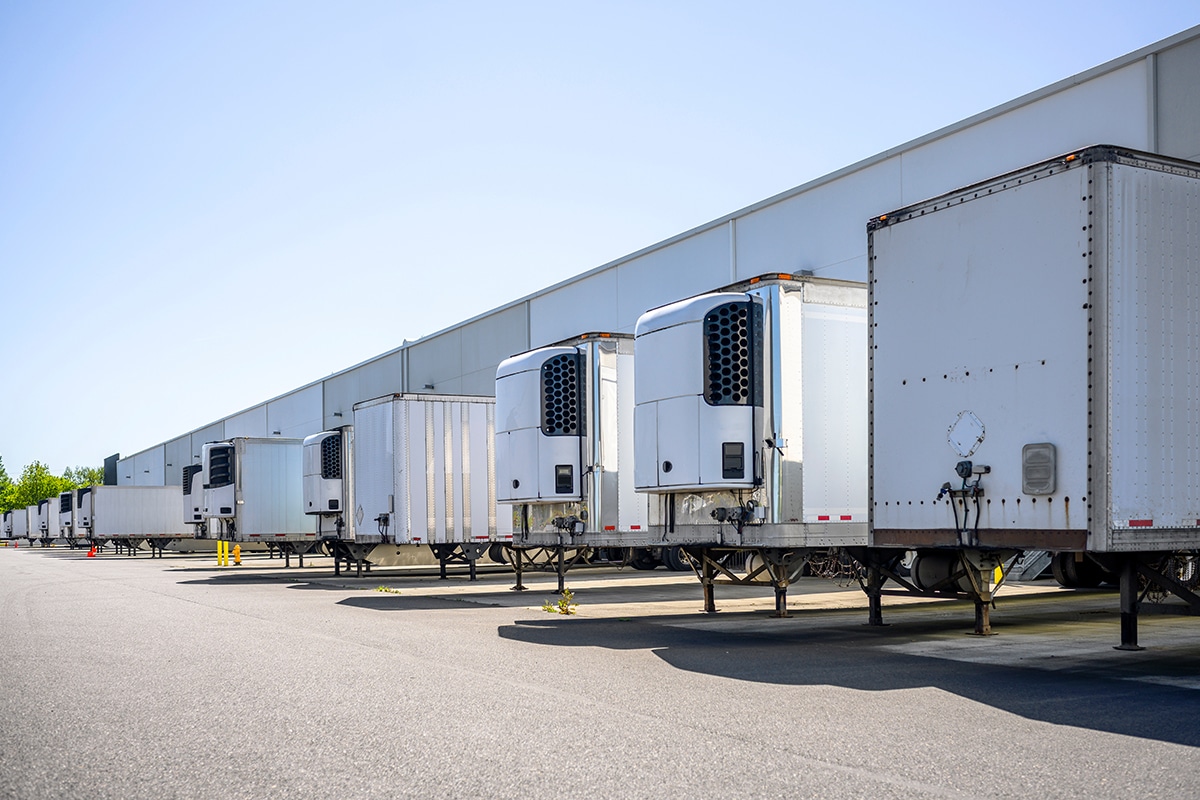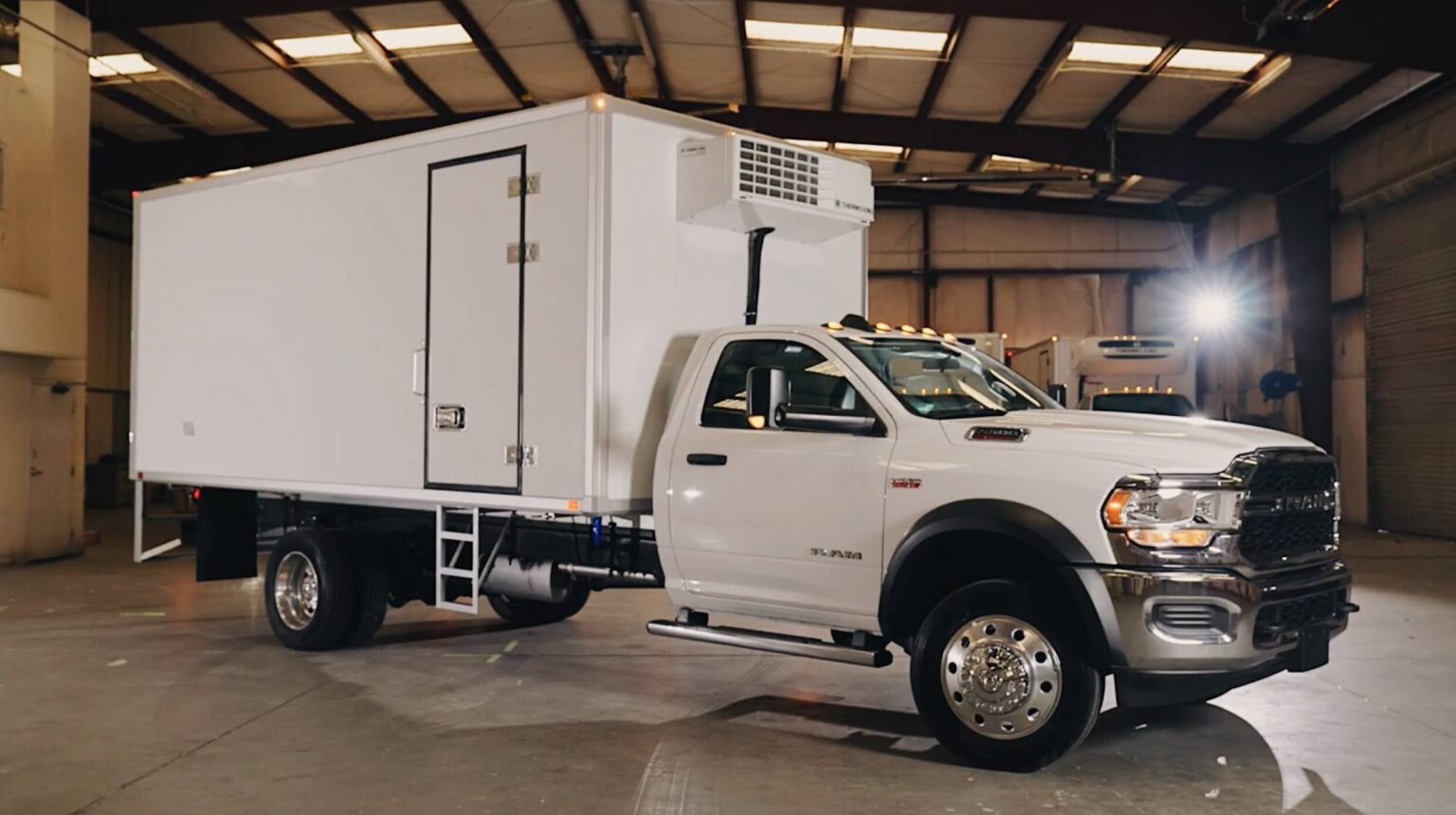Thermo King Truck Refrigeration: Efficient Cooling Down for Your Fleet
Thermo King Truck Refrigeration: Efficient Cooling Down for Your Fleet
Blog Article
Top Innovations in Transport Refrigeration: Enhancing Effectiveness and Security
The landscape of transport refrigeration is undertaking substantial improvement, driven by developments intended at enhancing both effectiveness and security. As these advancements proceed to advance, it is crucial to discover their effects on operational practices and regulatory conformity, prompting a more detailed assessment of how they reshape the future of transport refrigeration.
Smart Temperature Monitoring Solutions
In the realm of transportation refrigeration, smart temperature monitoring systems have actually arised as an important technology for making certain the stability of temperature-sensitive products. These sophisticated systems take advantage of Net of Points (IoT) innovation to provide real-time data on temperature level changes, allowing drivers to maintain ideal conditions throughout the supply chain. By constantly tracking the temperature level of refrigerated containers and automobiles, firms can swiftly recognize inconsistencies that may endanger item quality.

Additionally, clever surveillance systems commonly incorporate automated notifies and alerts, enabling stakeholders to respond immediately to any possible concerns. This proactive method not only decreases the risk of putridity yet also enhances conformity with governing standards regulating food security and pharmaceutical transport.
The assimilation of data analytics within these systems also assists in anticipating upkeep, assisting operators to visualize possible equipment failures prior to they take place. This ability decreases downtime and optimizes functional performance, eventually causing set you back financial savings.
Eco-Friendly Refrigerants
Smart temperature monitoring systems play a crucial function in preserving item quality, but the performance of transport refrigeration also depends upon the selection of cooling agents utilized. As ecological issues climb, the shift in the direction of eco-friendly cooling agents has actually come to be important. Traditional refrigerants, such as hydrofluorocarbons (HFCs), are notorious for their high Global Warming Potential (GWP), adding significantly to climate modification. In contrast, emerging alternatives like hydrocarbon-based refrigerants and hydrofluoroolefins (HFOs) present lower GWP choices, using both effectiveness and sustainability.
These green refrigerants not only decrease ecological impact yet likewise align with worldwide policies focused on phasing out unsafe materials. Their adoption can bring about boosted power effectiveness, ultimately decreasing operating expense for transport refrigeration systems. The usage of natural refrigerants, such as ammonia and carbon dioxide, has actually gained grip due to their outstanding thermodynamic residential properties and reduced environmental impact.
Purchasing green cooling agents is not just a regulative conformity step; it stands for a tactical choice that boosts brand credibility and fosters customer loyalty. refrigerated transportation thermo king. By focusing on sustainable methods, companies can add to a greener future while making sure the honesty of transferred goods
Advanced Insulation Products
Using sophisticated insulation products is important for optimizing transportation refrigeration systems, as they considerably boost power performance and maintain consistent temperature control. Conventional insulation techniques often drop short in preventing thermal transfer, leading to increased energy consumption and changing temperature levels within refrigerated areas.
Emerging materials such as vacuum cleaner shielded panels (VIPs) and aerogels provide premium thermal resistance, enabling thinner profiles without endangering performance. VIPs, for instance, use a vacuum layer to minimize conductive and convective warmth transfer, making them perfect for space-constrained applications. Aerogels, known for their light-weight and porous framework, provide phenomenal insulation while significantly reducing general system weight.
Furthermore, incorporating phase adjustment materials (PCMs) right into insulation systems can better maintain temperatures during transit. These products soak up and release thermal power, efficiently buffering versus exterior temperature variants.
The integration of these advanced insulation materials not just reduces the functional prices connected with power consumption yet also extends the shelf life of temperature-sensitive products. As the transportation refrigeration sector remains to progress, the fostering of innovative insulation technologies will certainly be critical in boosting both effectiveness and safety in cooled transport.
Automated Route Optimization
The efficiency of transportation refrigeration systems is significantly enhanced through automated path optimization, which leverages innovative formulas and real-time information to figure out the most reliable paths for delivery. By assessing different elements such as web traffic patterns, climate problems, and shipment home windows, these systems can considerably minimize travel time and gas consumption.
Automated course optimization lessens human mistake and subjective decision-making, which can lead to inefficiencies. This technology makes it possible for you can try here fleet managers to designate resources extra successfully, making certain that chilled goods keep their needed temperature throughout the journey. By enhancing routes, companies can likewise boost customer complete satisfaction through prompt shipments.
Furthermore, automated systems can adjust to unpredicted conditions, such as road closures or unexpected web traffic spikes, permitting dynamic rerouting. This flexibility not only shields the honesty of temperature-sensitive products but also adds to general operational efficiency.
Implementing automated course optimization can result in significant cost financial savings while lowering the carbon footprint related to transport. As organizations significantly prioritize sustainability, this innovation sticks out as a vital part in modern-day transportation refrigeration, lining up functional objectives with environmental obligation. Eventually, automated route optimization represents a substantial advancement in the mission for performance and safety in transportation refrigeration.

Real-Time Data Analytics
Automated path optimization substantially take advantage of the integration of real-time information analytics, which offers crucial understandings into the performance of transportation refrigeration systems. By utilizing real-time information, transport operators can keep an eye on temperature fluctuations and devices efficiency, guaranteeing that perishable products are maintained within needed criteria throughout transportation. This aggressive approach not only enhances the high quality of the moved products but additionally reduces the threat of more helpful hints wasting and loss.

In addition to improving performance, real-time analytics improves security by making certain conformity with regulatory criteria for temperature level control. This not only safeguards public health and wellness but likewise strengthens a business's online reputation - refrigerated transportation thermo king. As the transportation refrigeration market progresses, the combination of real-time information analytics becomes a keystone for driving innovation, sustainability, and functional excellence
Conclusion
Finally, the improvements in transport refrigeration considerably boost both performance and safety within the industry. Smart temperature monitoring systems and real-time data analytics provide vital oversight, while green cooling agents and advanced insulation materials add to sustainability and power performance. Automated route optimization algorithms not just reduce travel time but likewise lessen environmental impact. Jointly, these technologies represent a critical evolution in transportation refrigeration, making sure compliance with regulatory standards and promoting a greener future.
The landscape of transport refrigeration is undergoing considerable transformation, driven by developments intended at improving both efficiency and security.Smart temperature tracking systems play a crucial role in preserving product top quality, however the efficiency of transport refrigeration additionally pivots on the selection of cooling agents made use of. Their fostering can lead to boosted energy efficiency, ultimately decreasing operating prices for transport refrigeration systems. Eventually, automated route optimization represents a significant advancement in the quest for efficiency and security in transportation useful source refrigeration.
In conclusion, the improvements in transport refrigeration dramatically boost both performance and security within the sector.
Report this page